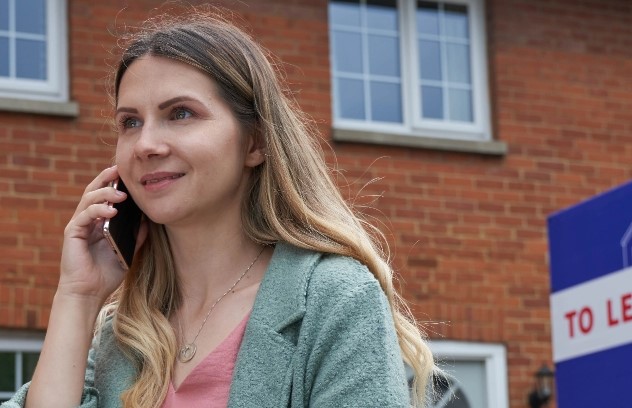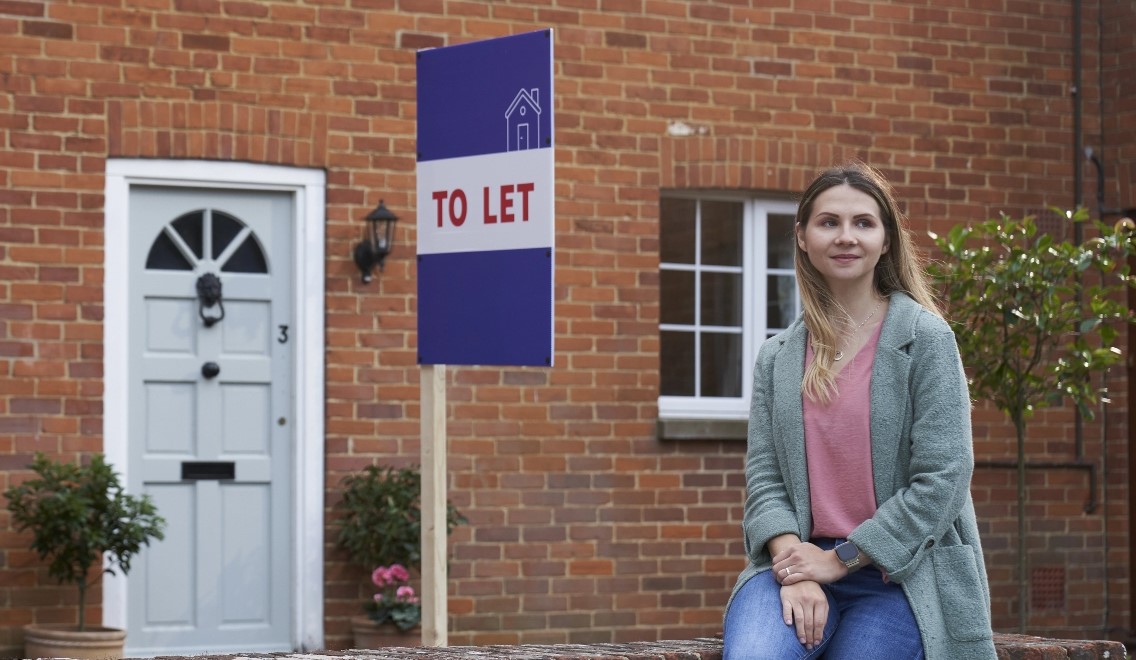12 MAY 20238 MIN READ
A landlords guide to sitting tenants & their rights
With the cost of living crisis many landlords are revaluating their current properties and looking to either buy new properties or sell one they currently own. However, when it comes to properties that are being rented there are certain rights in place for tenants that are currently living there.
If you’re looking to buy or sell a property that currently has tenants in it, it’s important that you understand what rights they have before making a deal. Note that the rights of tenants may vary depending on where you live, so always double check these with your local authority.

What is a sitting tenant?
A sitting tenant is someone who is already in the property when it is being sold. If they have an ongoing contract, then usually a sitting tenant will retain their right to live in the property even if it is being sold. Therefore, the new owner has to be willing to take over the contract and see it through to completion.
Some buyers may see a sitting tenant as a positive since they won’t need to look for tenants and if the sitting tenant has been there for a long time, it may offer a reliable income. However, other buyers may consider it a negative if they want to update the property or use it differently.
If you’re considering buying a property that has sitting tenants, it’s important that you understand the rights of a sitting tenant.
What does a property sold with a sitting tenant mean?
Most tenants will have a contract or tenancy agreement that covers what happens in the case of their landlord selling the property. As a buyer, you effectively take over that contract and need to adhere to the terms within it until the contract is fulfilled.
If there is no sitting tenant clause in the tenancy agreement, then the default sitting tenant legislation is adhered to.
Typically, a sitting tenant will have the following rights:
If the tenant has an existing tenancy agreement with the current landlord, the tenant will retain the right to live in the property even when the new landlord takes over management.
The sitting tenant has the right to remain there until the tenancy reaches its end date or they are evicted.
Sitting tenants cannot be evicted just because you want to do something else with the space. It will only be allowed if they were to break the terms of their existing tenancy.
You cannot charge a sitting tenant for any services or work that they have already been charged for by the previous landlord.
Note that tenants’ rights are quite different in Scotland as they have open ended tenancies rather than ones for a fixed time period. You can learn more about the types of tenancy in Scotland and their rights by visiting the Scottish Government website.

How to communicate with tenants about selling property
If you wish to sell a property that has a tenant in it currently, don’t worry! You’ll still be able to do so. You’ll definitely want to speak to your sitting tenants in advance though. Before that property goes on the market, have a chat with your tenants to let them know why you’re selling up, what the process will look like and how it will affect them.
They should be informed of their legal rights and given any useful resources so that they know what to expect if their landlord changes.
If you intend to sell once their tenancy agreements ends, it will be helpful for the tenants to have advance notice that you will not be renewing with them. That will give the tenants plenty of time to look for new accommodation and not feel rushed. You can also offer to give them tenant references as a way of helping them along.
You’ll also want to let the tenants know that viewings may be necessary as part of the sale process. As such you may want to organize an inspection of the property so that they can flag any issues and you can ensure everything looks ready for selling.
A timeline of when you intend you intend to complete the sale and a time period in which viewings will happen will be a helpful tool when communicating this change to your tenants.
Where possible, it’s best to sit down in person with your tenants to talk about this so that they can ask you any questions they may have. You can then follow up with information in writing so that they can refer back to it as needed.
How to sell a property with a tenant
If you’re going to sell a property that currently has a tenant, there’s a few ways you can handle that:
While a sitting tenant doesn’t have the right to buy the property, it might be easiest to offer them the chance to buy it from you. This is by no means required but could be an ideal situation. The tenant gets to continue living at the property and you don’t have to spend time attending viewings, paying for photography of the flat, or marketing it online.
If their tenancy has an end date on your contract, they you can wait until the current agreement is completed. In parts of the UK that still have fixed-term tenancy like England and Wales, the fixed term is often for six or twelve months so you won’t have too long to wait. If you intend to do this, make sure you give at least the legally required amount of notice that you do not intend to renew their contract.
This can only be done in certain circumstances and you must follow specific procedures. You may be guilty of harassing or illegally evicting your tenants if you do not follow the correct procedures. Carefully consider whether or not this is a wise route for you. Aside from interrupting your tenants’ living situation, you will also need to cover the costs of the property until it sells. If this takes longer than expected, you will be paying council tax, mortgage repayments and other expenses in the meantime. If you feel that having a vacant property is best, then read the UK Government guidance on evicting tenants here.
As long as the buyer is willing to take over the contract of your current tenants, this can be a simpler method with no risk of lost rental revenue while you wait for the property to sell. Often it takes at least two months to fully close a property sale and have the new buyers move in, so having a tenant in situ the whole time helps reduce financial burdens. Having the property occupied while you wait for the sale to go through can also help reduce risk of break-ins or vandalism as the property is clearly attended to.
Buying a property with a tenant?
If you’re the buyer, not the seller, then there’s a few things you’ll need to consider:
If your plan is to buy the property in order to rent it out still, then sitting tenants could actually be a benefit for you as you won’t need to find new ones. If you intend to buy and then reside in the property, you may need to wait until the existing tenancy contract ends or notice has been given to the sitting tenants.
You should do your due diligence and find out what you can about the existing tenants as far as how the state they’ve kept the property in and if they’ve been paying rent on time consistently.
Usually legal agreements such as the contract will transfer into your name at the time of sale, but it’s worth checking that everything has transferred over to you including things like the deposit protection scheme details. You’ll also want to let tenants know your contact details and how to pay their rent to you.
Both methods of managing a buy-to-let property can have their merits. Find out some pros and cons of each in our article on being a private landlord vs using a letting agency. If you’re managing the property yourself – consider setting up a time to meet your tenants once the sale is completed.
It can be a bit more difficult to get a mortgage for a buy-to-let property which as a sitting tenant. Be prepared for fewer mortgage choices and possibly higher rates than you might find in a vacant property.
If this is your first time having a buy-to-let property, read our guide to becoming a landlord for more information and advice.
Does a sitting tenant devalue a property
Often a property with sitting tenants will be less expensive than a vacant property. This can be a challenge if you’re the seller but a great opportunity if you’re a buyer looking to get into the landlord business.
The challenges of getting a mortgage is one of the many reasons why a property with a sitting tenant will sell for less. Other reasons may include the need to finish an existing tenants’ contract before moving in yourself and the challenges of properly vetting the tenants before taking the property on.
As recently as 2019, it was reported that properties with sitting tenants sell at auction for up to 75% to 85% of their vacant value. It is worth talking with a property sales expert to see how a sitting tenant may impact your sale potential.

AXA landlord insurance from £177*
You work hard, so we’ve made insurance easy. Insure your rental property with AXA today so that you have one less thing to worry about and can get back to spending your time on what matters most to you.
All links are checked and valid at time of publishing, 12 May 2023.
